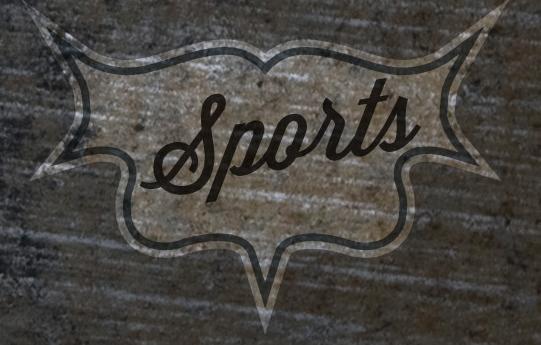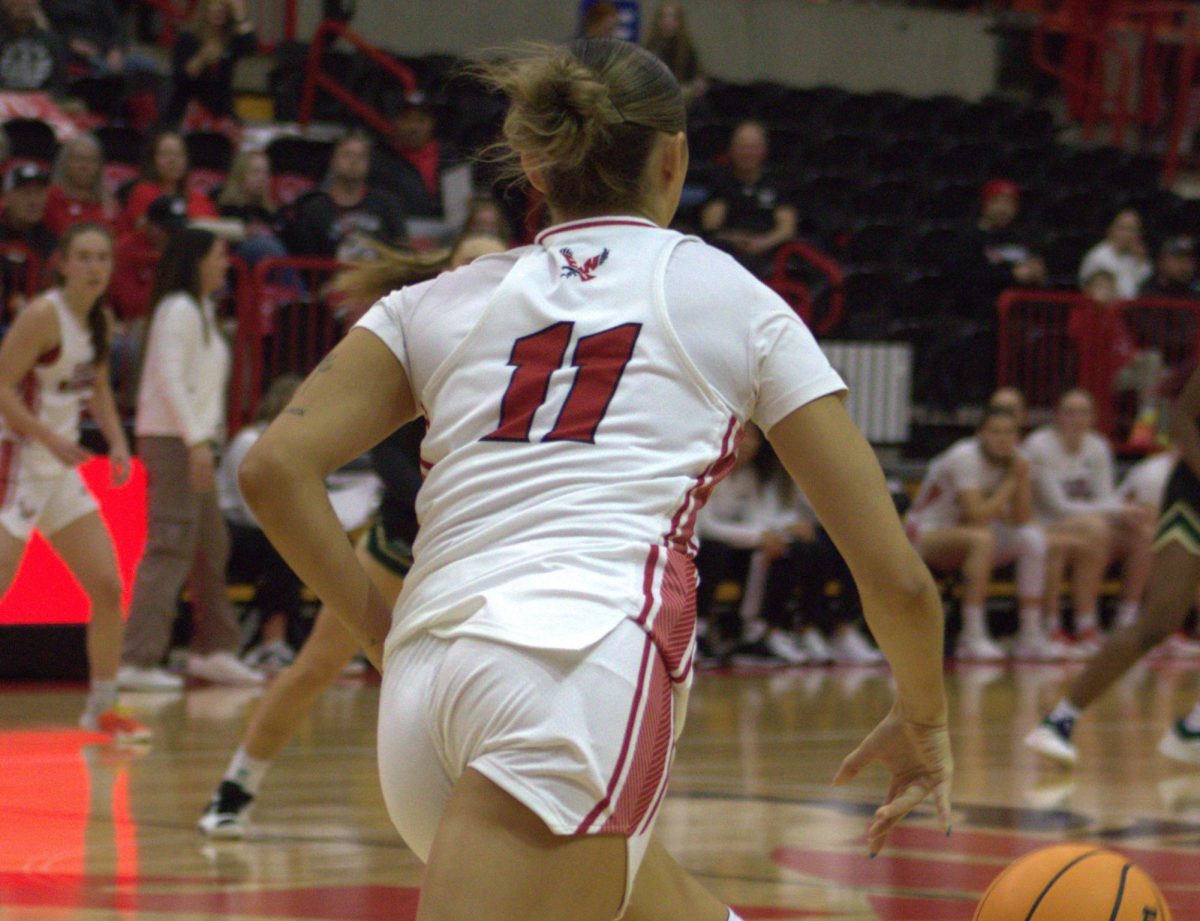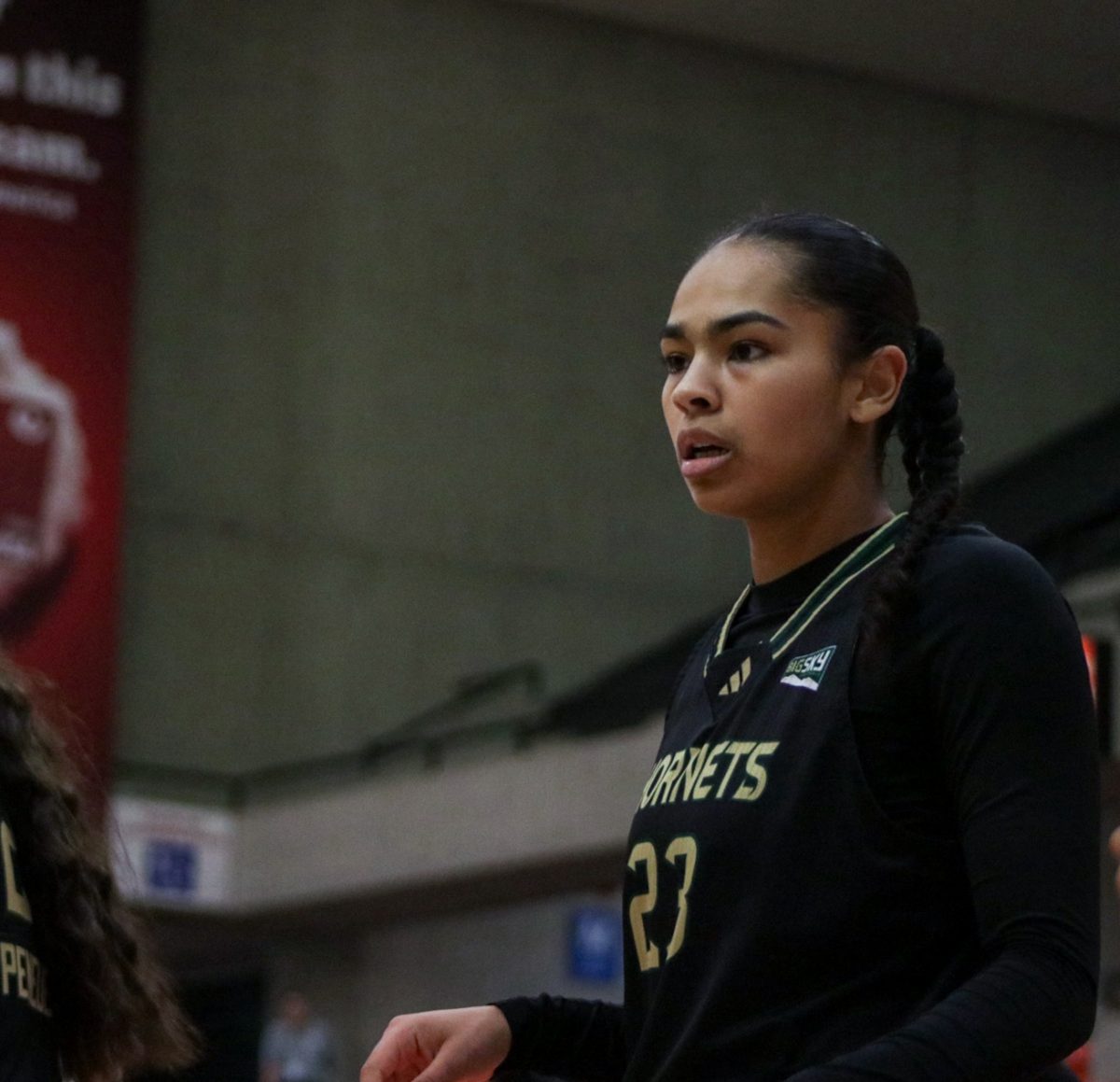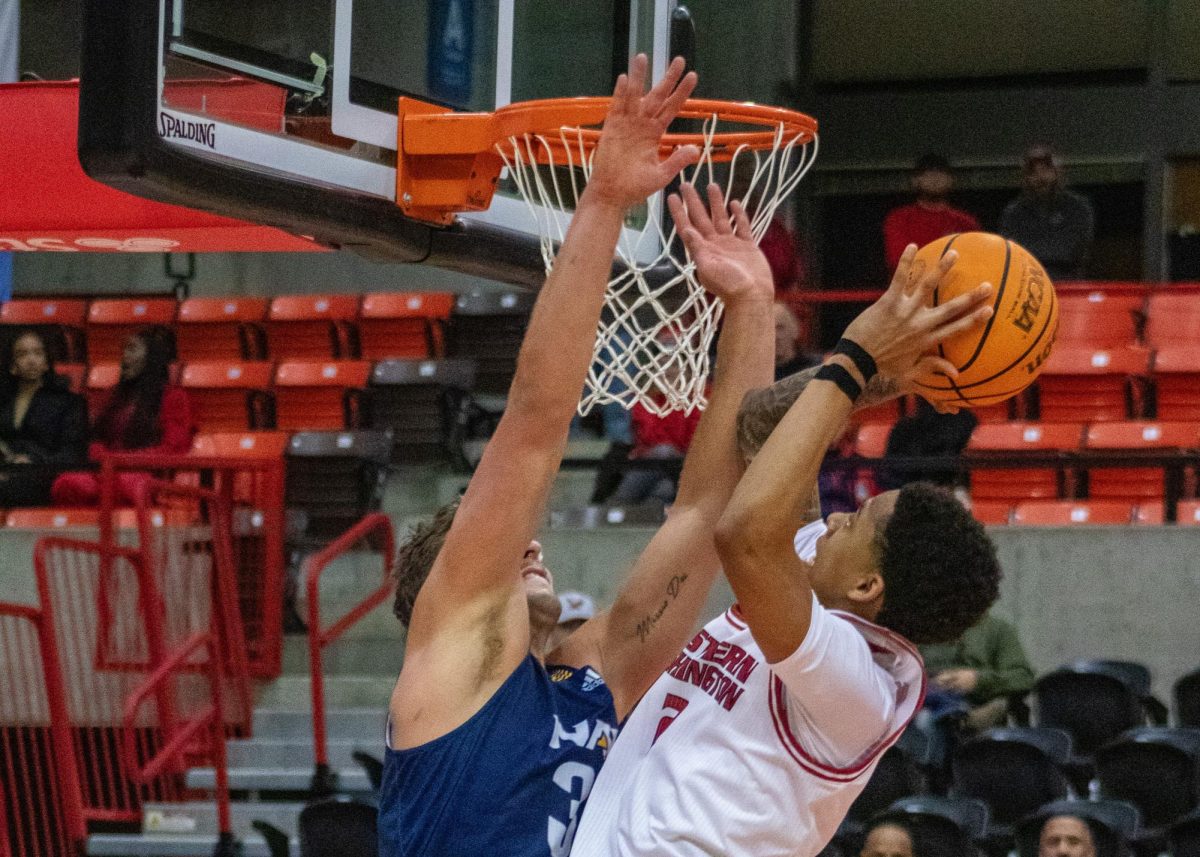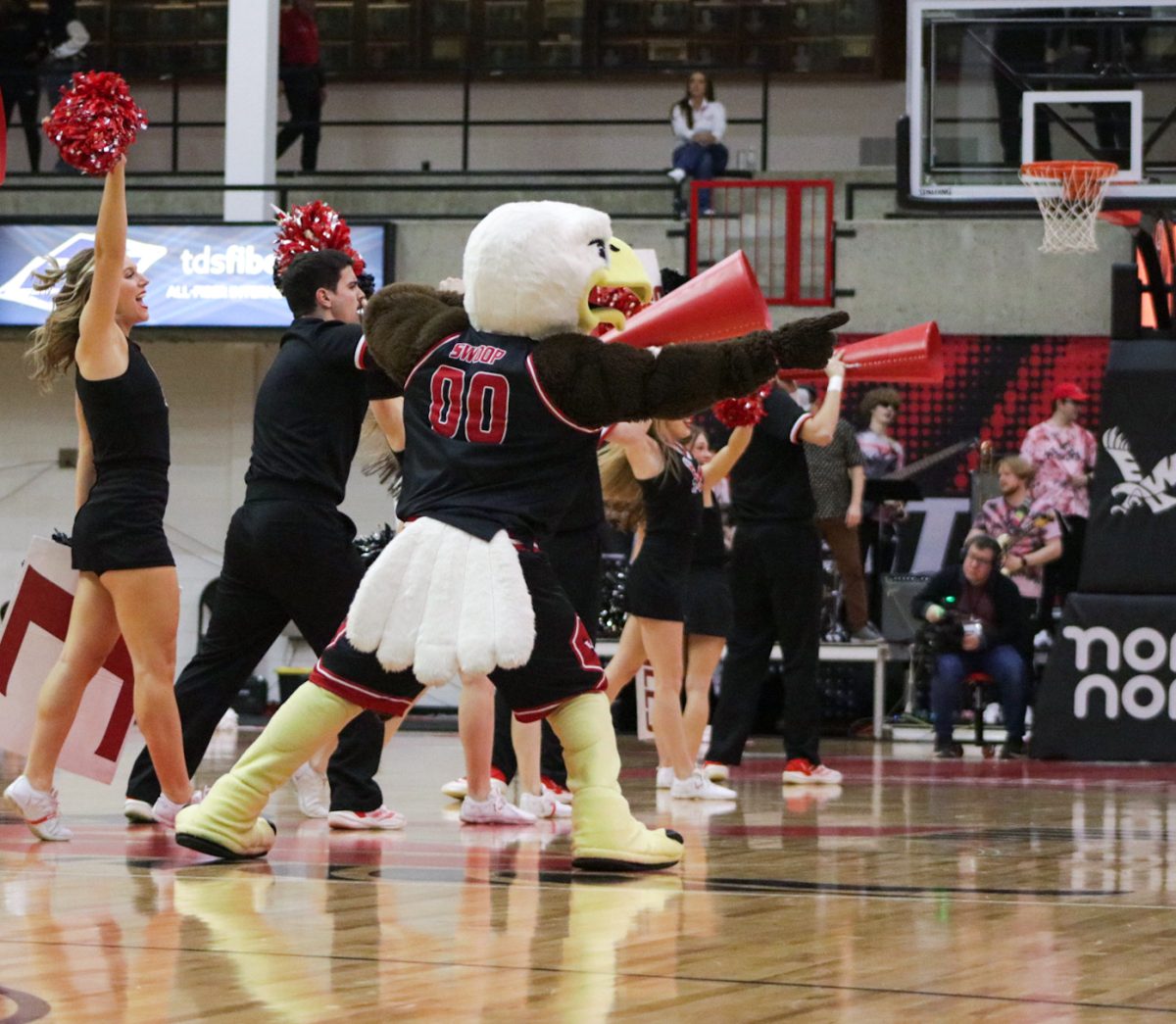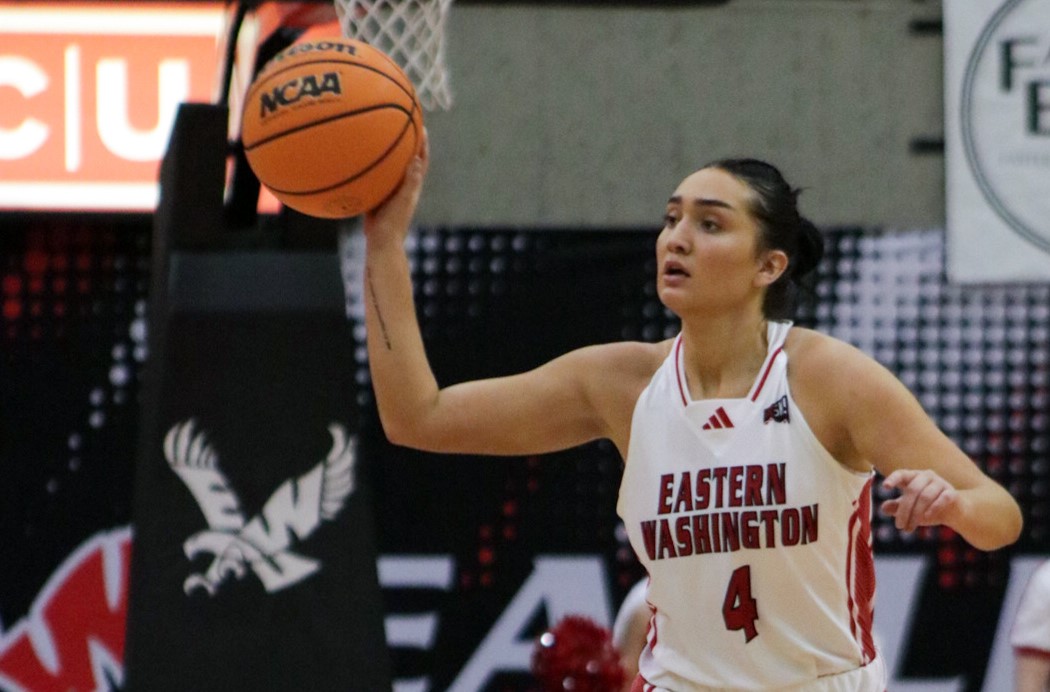Football coach remains humble despite program’s success
Walking past a young reporter and one of his assistant coaches, Eagles head football coach Beau Baldwin heard his name spoken, and his ears perked up.
“Everybody wants to know Beau,” said Ryan Sawyer, EWU’s defensive line coach and recruiting coordinator, when informed that The Easterner was planning on doing a story on his head coach.
From about 15 feet away, between shaking hands and giving hugs to EWU supporters out watching practice, Baldwin turned and asked, “Everybody wants to know what?”
“They’re doing a story on you and want to interview me,” Sawyer said. Baldwin playfully rolled his eyes and smiled, finally walking off the track and onto the red speed turf also known as “The Inferno” after catching up with the Eagles fans.
Sawyer is right—everybody wants to know Beau, and with good reason.
Under Baldwin’s tutelage as head coach, EWU has achieved a tremendous amount of success. His team won a national championship in 2010 and is participating in the Football Championship Subdivision playoffs for the third time in four years.
One might think that all this success would go to Baldwin’s head. Not true, said EWU sports information director David Cook. “You’d think that a guy would get an inflated ego or something after winning a national championship, but not Beau. He’s been very humble through it all.
“He’s very accommodating. He’ll make the time for just about anybody, anytime. He’s just been unbelievable in terms of our need for media exposure. He’s able to do the interviews and the media love him, and that makes my job that much easier.”
Cook’s job includes, but is not limited to, making sure the media has sufficient access to EWU players and coaches, in particular Baldwin, before practice and after games. These are stressful times, especially for the head coach of an elite NCAA Division I college football program, but Baldwin never turns down an interview request or fails to honestly answer questions.
“[He’s a] tremendously high-character individual,” said EWU athletic director Bill Chaves, the man who hired Baldwin as the Eagles head coach in 2008. “And obviously you need to be a very good coach as well, but he commands respect of his team and really everyone at the university just by the way that he carries himself, and I think that ends up being a reflection of how his teams play and certain[ly] how they carry themselves both on and off the field.”
On the field, Baldwin will never be mistaken for a Jon Gruden or Bill Cowher type coach—that is, one who visibly chews out players and referees, throws clipboards or demonstratively acts in emotional fashion. Instead, Baldwin takes a more consistent approach, never reacting too much or too little to any given situation.
“You know that he’s not going to panic in a situation if things go bad,” Sawyer said.
Aaron Best, EWU’s offensive coordinator, went to the same high school as Baldwin in Tacoma, Wash., and remembers cheering for him at football games. “When he speaks, people listen,” said Best. “He doesn’t get too high, doesn’t get too low, and that’s what he preaches to the kids.”
Best said that Baldwin’s offensive knowledge is unparalleled. “I don’t know if I’ve ever been around a more brilliant mind offensively in the pass game, and he does it without an ego. That’s kind of where the mellowness comes. He’s steady in his ways, and he knows what he’s doing and we all kind of sit back and put our seatbelts on and know he’s driving us to the right destination.”
A study of Baldwin’s coaching staff reveals a common theme: familiarity and friendship. John Graham, who has served as EWU’s defensive coordinator since Baldwin became the head coach, went to the same high school as Best and Baldwin and was actually on the same team as Baldwin in 1991, when Graham was a senior and Baldwin was a sophomore. “He’s a great boss; he’s a great friend,” Graham said. “It’s a really good friendship.”
Zak Hill had the unique experience of being coached by Baldwin at Central Washington University and now coaching alongside Baldwin at EWU as quarterbacks coach. During Hill’s first four years at CWU—from 1998 to 2001—Baldwin served as Hill’s quarterbacks coach.
“He was a very positive coach,” Hill said. “I think that helped myself and I know a lot of other guys out in that position because it can be one of those [positions] where there’s a lot of stress, so it’s nice having a coach that’s always backing you and supporting you. I think that was one of the big things that I learned too, and I carry that into my own coaching.”
Aside from the coaches, EWU players have a great deal of respect for Baldwin. In particular, senior wide receiver Nicholas Edwards, a member of Baldwin’s first recruiting class at EWU. Edwards said that he was originally planning on attending Santa Monica Junior College but received a phone call from Baldwin that helped persuade him to take his talents to Cheney instead.
“He taught me the whole [offensive] system, from top to bottom, not just the receiver position,” Edwards said. “He taught me everything. I think that’s what makes him a good coach; he just doesn’t focus on one thing, he focuses on the whole big picture.”
Eagles nose tackle Evan Cook, another member of Baldwin’s first recruiting class, said it took awhile to get to know Baldwin. “He’s a great guy,” Cook said. “At first I feel like he was kind of hard to get a beat on, but now after being around him for five years, he’s just great. He’s always the same.”
Cook also appreciated Baldwin’s ability and willingness to connect with the team. “That’s the best thing that a coach can do is be able to communicate with his players; he’s amazing at that.”
For senior safety Jeff Minnerly, the team’s confidence in Baldwin’s methods is what allows them to maintain their high levels of success. “We just trust that he’s always going to do what’s best for the team, and that in itself is calming,” Minnerly said. “I think his demeanor always matches what we need it to be.”
The job of being a head football coach at a Division I university is a tall order, and one that Baldwin undertakes with help from his complimentary coaches and players. “He’s a team player,” Best said. “He looks after his assistant coaches, and it’s obvious. It’s not something he tells us and we believe, it’s obvious without him even having to tell us.”




